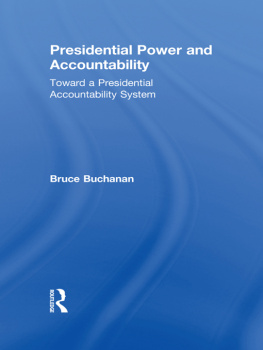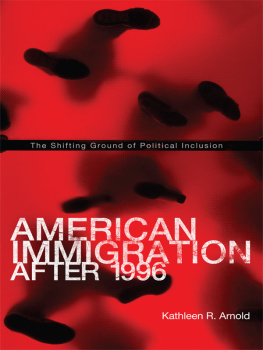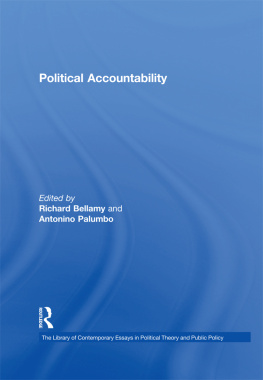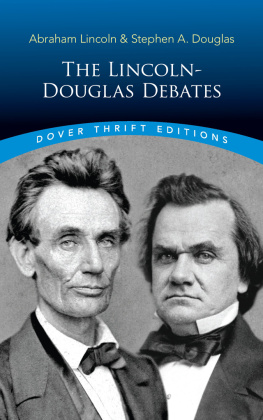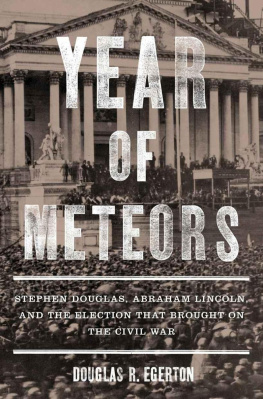CONGRESS, THE PRESS, AND POLITICAL ACCOUNTABILITY
CONGRESS, THE PRESS, AND POLITICAL ACCOUNTABILITY
R. Douglas Arnold
RUSSELL SAGE FOUNDATION NEWYORK
PRINCETON UNIVERSITY PRESS PRINCETON AND OXFORD
Copyright 2004 by Russell Sage Foundation
Requests for permission to reproduce material from this work
should be sent to Permissions, Princeton University Press.
Published by Princeton University Press,
41 William Street, Princeton, New Jersey 08540
In the United Kingdom: Princeton University Press,
3 Market Place, Woodstock, Oxfordshire OX20 1SY
and Russell Sage Foundation, 112 East 64th Street,
New York, New York 10021
ALL RIGHTS RESERVED
Library of Congress Cataloging-in-Publication Data
Arnold, R. Douglas, 1950
Congress, the press, and political accountability / R. Douglas Arnold.
p. cm.
Includes bibliographical references and index.
ISBN 0-691-11710-1 (cl. : alk. paper)
1. Press and politicsUnited States. 2. United States. CongressPress coverageUnited States. I. Title.
PN4888.P6A76 2004
070.449320973dc22 | 2003055535 |
British Library Cataloging-in-Publication Data is available
This book has been composed in Electra Printed on acid-free paper.
www.pupress.princeton.edu
www.russellsage.org
Printed in the United States of America
10 9 8 7 6 5 4 3 2 1
Tables and Figures
Tables
Figures
Acknowledgments
FOR GENEROUS financial support, I am indebted to the Russell Sage Foundation, the National Science Foundation (SBR-9422386; SES-0209609), the Earhart Foundation, the Dirksen Congressional Center, the Caterpillar Foundation, and the Goldsmith Awards Program at the Joan Shorenstein Center on the Press, Politics, and Public Policy at Harvard University. I have also profited from the regular faculty leave program at Princeton University and from research funds available at Princetons Woodrow Wilson School.
My greatest debts are to Larry Bartels, Tim Cook, and John Zaller, who provided superb advice at various stages of the project, and to a talented group of assistants, including Scott Abernathy, J. J. Balaban, Reggie Cohen, Laura Delanoy, Kimberly Giamportone, Todd Jones, Chris Mackie, Michael Paul, Okiyoshi Takeda, and Helene Wood, who helped create and manage the data sets. I am indebted to Danielle Vinson for sharing data from her own project.
I am grateful to Richard Fenno, Fred Greenstein, Richard Hall, Stanley Kelley, Gregory Koger, Jane Mansbridge, David Mayhew, Robert Merton, Hans Noel, Michael Schudson, Wendy Schiller, Okiyoshi Takeda, and Craig Volden for their critical reactions to various versions of the manuscript. I also profited from suggestions made by seminar participants at Columbia, Harvard, Louisiana State, Michigan, Princeton, Rutgers, Stony Brook, Yale, and the Russell Sage Foundation.
Mere words cannot capture my enormous debt to Alex Quinn.
CONGRESS, THE PRESS, AND POLITICAL ACCOUNTABILITY
Legislators, Journalists, and Citizens
THE MASS MEDIA perform a vital function in democratic systems by reporting what elected officials are doing in office. The media convey not only factual accounts of officials activities and decisions; they also transmit evaluations of officials performance, including assessments by other politicians, interest group leaders, pundits, and ordinary citizens. Although the media are not the only source of information about officials performance, they are by far the most important. Indeed, it is difficult to imagine how large-scale democracy would be possible without a free and independent press to report the actions of governmental officials. Robert Dahl, the democratic theorist, argues that the existence of alternative and independent sources of information is one of seven necessary conditions for the existence of democratic government.
Information about elected officials performance serves two important purposes. First, it allows citizens to evaluate the desirability of retaining or replacing officials when they run for reelection. Candidates promise all sorts of things when they first run for office. When they run for reelection, however, there is no better guide to their future performance than what they have already done. Second, a regular flow of information about governmental decision making helps keep officials on their toes when they first make decisions. Officials who expect their actions to be featured on the evening news and on the front pages of newspapers may make decisions different from officials who expect their decisions to remain forever hidden from public scrutiny.
How extensively and how effectively do media outlets in the United States cover elected officials? Do they report the kinds of information that citizens need to hold officials accountable for their actions in office? Or is coverage so spotty and incomplete that even the most diligent citizens cannot learn much about who is responsible for governmental decisions? These important questions are central to the performance of democratic government. Unfortunately, they are not questions to which we know the answers.
Most citizens are exposed to a regular diet of information about what the president is doing in office. The mass media cover presidential activities on an almost daily basis, reporting where the president travels, what he says, what he proposes, how his proposals fare in Congress, what he is doing about various crises, and what innumerable pundits, legislators, politicians, and foreign officials think of his performance in office. Although one can surely raise questions about the adequacy and fairness of the medias coverage of presidential activities and about the depth of citizens knowledge of presidential performance, two things seem clear. First, presidents know that their deeds and misdeeds will be covered by the press and noticed by the public, so they work hard to produce pleasing records. Second, when pollsters come knocking at their doors, it is reasonable to believe that most citizens have some evidentiary basis for determining whether they approve or disapprove of the way the president is handling his job as president.
Can one make similar arguments about the way journalists cover members of Congress? Do legislators expect that their individual activities and decisions in Washington will be covered by the press and reported to their constituents? Are citizens exposed to regular information about what their senators or representatives are doing in office? Do citizens have any evidentiary basis for determining whether they approve or disapprove of the way their representatives are performing in office? Here the issues become more complicated, in part because there are 535 legislators to cover. Journalists do not cover all senators and representatives equally well. Citizens in different states and different districts are not exposed to identical flows of information.
Media Outlets
The so-called national pressthe networks, newsmagazines, and national newspaperscould not possibly cover the individual activities of every senator and representative. The national press can cover Congress as an institution and report what it is doing about a whole range of problems. It can focus on some colorful or consequential legislators, making Ted Kennedy and Newt Gingrich into household names. The national press could not possibly make 535 legislators into household names. It has neither the time nor the space for such intensive coverage. The typical representative does not appear even once a year in




